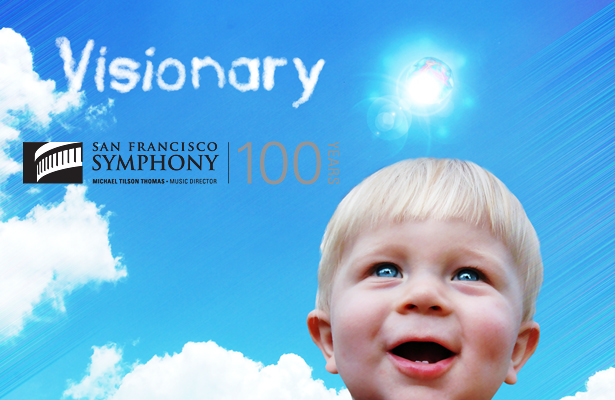 The scene is San Francisco, December 1911, only five years after the massive earthquake of 1906. From those ruins emerged a desire for a high quality and permanent orchestra.
The scene is San Francisco, December 1911, only five years after the massive earthquake of 1906. From those ruins emerged a desire for a high quality and permanent orchestra.
The result? A powerful wave of civic and social efforts that resulted in a symphony debut and an artistic tradition the city is proud of a century later.
Yesterday you read about the 100-year anniversary of the San Francisco Symphony (SFS.) Unquestionably one of the world’s premier musical ensembles, the SFS breathes life into classical music that reaches far beyond its Bay Area communities. A comprehensive list of awards is far too lengthy to reproduce here, but it includes 11 Grammy Awards and 12 honorary recognitions by the American Society of Composers. Both the orchestra and its chorus are nationally and globally recognized. In addition, SFS also operates its own youth chorus, established in 1980. This makes it one of the only American organizations to manage both an orchestra and chorus for youth.
SFS has hosted some of the greatest conductors and composers of recent history. But perhaps most impressive is its extensive array of projects dedicated to preserving the legacy of ideas left behind by great composers such as Gustav Mahler and Leonard Bernstein. Led by innovator and visionary Michael Tilson Thomas, SFS harnesses the power of modern media and technology to drive new developments in the classical music world.
Demonstrating incredible initiative, SFS became one of the first American symphonies to create its own label, SFS Media, in 2001. This gives it control over its own production. Michael Tilson Thomas also spearheaded a project beginning in the fall of 2006 called Keeping Score. Through a variety of media outlets, including national TV (PBS), DVDs, live events, and educational programs, Keeping Score provides access to classical music for all ages and musical backgrounds.
Long ago, SFS recognized that public school programs often did not provide adequate opportunity for youth to become involved in the arts. Now with decreasing funding for the arts, its educational outreach programs are greatly needed. In 1988, SFS established Adventures in Music (AIM), which introduces music to every first- through fifth-grade child in the San Francisco Unified School District. A decade and a half later, SFS launched SFSKids.org, a comprehensive and interactive online music education resource for children, schools, and families. Nearly 30,000 students throughout the Bay Area hear the San Francisco Symphony each year in its Concerts for Kids program, which began in 1919.
These initiatives show us that the San Francisco Symphony places a high value on community. In October 1989, the organization (including both the orchestra and chorus) helped to raise civic morale and strength in the wake of the Loma Prieta Earthquake by playing Beethoven’s Ninth Symphony to an audience of more than 20,000 in Golden Gate Park.
—————
Lessons to learn:
- The most important thing to take away from SFS is that in order to be successful, you must be willing to serve others. The SFS serves not only its audiences but also its performers. Under Tilson Thomas, SFS has continued to expand opportunities for education and performing for its musicians. Its initiatives such as Keeping Score and SFSKids are designed to reach out and connect with more people. This not only brings in new audiences that otherwise may never have found classical music, but it also demonstrates the willingness of SFS to put those it’s serving first.
- Hold yourself to the highest possible standards. Only when you respect yourself and your abilities will others do the same. If you do not hold yourself in high regard, others will not either. Because SFS is a premier musical ensemble, it attracts the top talent. People WANT to play with the organization. People must WANT whatever it is that you are offering (whether its a product, service, or information.) When someone sees the dedication you have to classical music (or other field/area you represent), they will place a higher value on what you offer them.














Good article, and it is certainly visionary to create your own media label—but SFS is not the first to do it, at least for recording. The Louisville Orchestra created its own label, First Edition recordings, almost 50 years ago.
Karen, thank you for your comment. Great information!